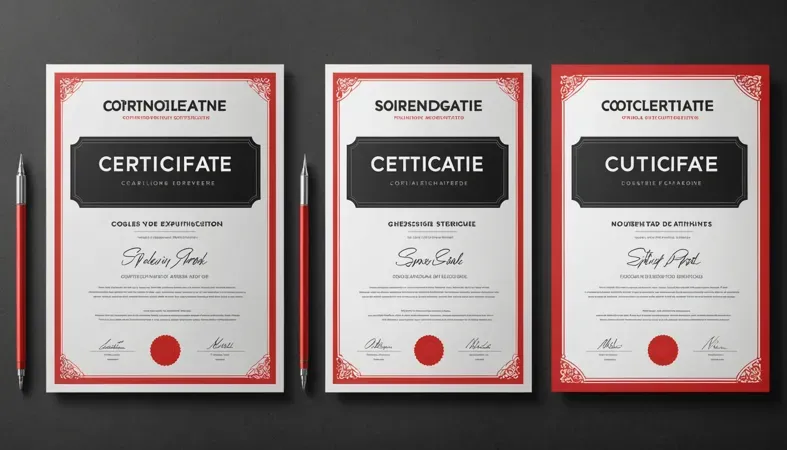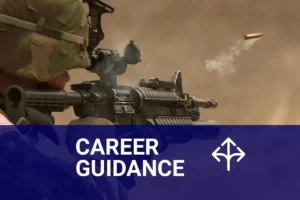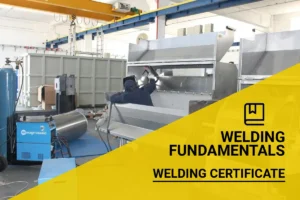How Long Does a Welding Certification Last? Duration, Types, and Key Factors
Published on: November 22, 2024 | Last modified: March 4, 2025
By: Joe Carter
If you thought getting certified was a one-time deal, think again. How long does a welding certification last? It’s crucial to keep track of it. From my experience, staying updated isn’t just about having a piece of paper; it reflects your commitment to the profession and keeps you competitive.
In this guide, we’ll cover various important topics about welding certifications, including what they are, the types available, prerequisites to consider, steps to obtain one, factors affecting certification validity, common issues, maintenance aftercare, benefits, typical uses, and even alternatives. Whether you ask how long are welding certifications good for or want details on the types, you’ll find the info you need here.
Contents
- How Long Does A Welding Certification Last?
- What Are Welding Certifications?
- Types Of Welding Certifications
- Prerequisites to Keep in Mind
- Steps for Obtaining a Welding Certification
- Factors Affecting Certification Validity
- Common Issues You Might Encounter
- What Happens When a Welding Certification Expires?
- Top Benefits You Can Expect
- Typical Uses Of Welding Certifications
- Alternatives That Might Work Better
- Frequently Asked Questions (FAQs)
- Wrap-up
- Additional Reading
How Long Does A Welding Certification Last?
A welding certification proves you’re skilled in welding. So, how long does a welding certification last? Typically, it’s valid for 3 to 5 years, depending on your certification type and industry. It’s crucial in fields like construction or manufacturing.
What Are Welding Certifications?
Welding certification is formal approval indicating a welder’s skills, proficiency, and knowledge in specific welding processes. These certifications follow standards set by organizations like the American Welding Society (AWS). They assess factors such as the type of weld, materials used, and welding positions. For example, AWS D1.1 certification covers structural welding and can significantly boost your job prospects.
How long does a welding certification last? Many certifications require renewal, typically every three years, depending on the certifying body. In my experience, consistent skill practice enhances your chances of renewal and job eligibility.
Friends have shared their experiences seeking new welding jobs. They mentioned that tracking the validity of their certifications helped avoid last-minute expirations. Knowing your certification is valid—whether for three or five years—makes applying for jobs much easier!
Types Of Welding Certifications
-
Certified Welder Program
This program certifies welders in specific processes, typically valid for three years.
-
Certified Welding Inspector Certification
This certification trains inspectors in weld quality and standards. It usually lasts three years but can be renewed through retesting or continuing education.
-
Certified Welding Educator Certification
This certifies welding instructors to teach standardized curricula. It’s valid for five years before renewal is required.
-
Certified Resistance Welding Technician
This certification proves expertise in resistance welding techniques, valid for two years before retraining is needed.
-
Certified Fabricator Certification
This designation is for fabricators meeting specific standards. It’s typically valid for two years and requires reassessment to maintain.
So far we covered different welding certification types. Next, let’s look at important prerequisites to consider.

Prerequisites to Keep in Mind
What do you need to be ready for the welding certification process?
- Welding Machine: You need a machine like the Lincoln Electric Power MIG 210 MP. It’s essential for performing different types of welds required for certification.
- Welding Rods: You need specific rods, such as E7018 or E6010. These are crucial for achieving the weld quality necessary to meet certification standards.
- Welding Certification Manual: Obtain the AWS D1.1 Structural Welding Code. It’s a key guide that outlines all standards for certification.
- Practice Material: Use materials like 1/4” (6.35 Mm) steel plates. Working with the appropriate thickness ensures you practice the required techniques.
You should now have a good understanding of the essential prerequisites for welding. In the next part, we’ll discuss the steps to obtain welding certification.
Steps for Obtaining a Welding Certification
Here are the steps to understand how long a welding certification lasts and what you need to do to keep it valid.
-
Check Certification Duration
Your welding certification typically lasts 3 years (36 Months) before renewal. This can vary by certifying body, like the American Welding Society (AWS). Certain certifications, such as AWS D1.1, may have specific recertification rules. Always verify the duration during your initial certification.
Be mindful of any additional requirements like continuing education. Some organizations may require you to complete courses or workshops to maintain your skills. I’ve seen people wait too long and then scramble to meet requirements. Don’t let that be you!
-
Plan for Recertification
After your initial certification period, plan for recertification. Many programs allow you to renew your certification through a written test, a practical exam, or a specific training program. Mark your calendar to avoid last-minute stress.
Contact your certifying body for their specific process and requirements. Each organization, including AWS, may have unique recertification needs. I once missed a deadline and had to retake the entire course; it taught me the importance of being proactive.
-
Keep Your Skills Sharp
Continued training is vital for staying certified. Regular practice and skill improvement help you perform better in recertification exams. For instance, attending workshops annually or joining local welding competitions is beneficial. This hands-on experience can also make you stand out in a competitive job market.
Use online resources or local classes to enhance your skills. Staying current with industry standards and technology can improve your qualifications. I can’t stress enough how valuable continuous learning has been for my career.
-
Document Your Experience
Keep records of your welding jobs and projects, as they may be useful during recertification. Most certifying bodies accept practical experience in renewal applications. Prepare a portfolio that showcases your work; it demonstrates your commitment and skill level to potential employers.
Documenting your experience takes time, but it pays off. I recommend keeping photos, client feedback, and certifications from completed courses. These materials can set you apart during renewal.
-
Stay Updated With Standards
Welding codes and standards change frequently. Stay informed about updates from organizations like AWS. Being aware of changes ensures you’re not caught off guard during the certification process. Review new welding practices or technologies that might impact your work.
Attend industry conferences or read welding magazines to stay in the loop. I find that being proactive about these updates makes the recertification process smoother. After all, knowledge is power!
We have now covered the steps for obtaining a welding certification.
Next, we will cover the factors influencing certification validity.
Factors Affecting Certification Validity
What factors can change the lifespan of your welding certification?
-
Type Of Certification
The type of welding certification you hold can impact its duration. AWS D1.1 certifications typically last for three years, while others can range from six months to five years.
-
Renewal Requirements
Many certifications require renewal every few years. Failing to meet these requirements can shorten your certification’s validity and affect job eligibility.
-
Industry Standards
Some industries have stricter standards. For example, the construction sector often mandates regular recertification to comply with safety regulations.
-
Work Experience
Your work experience plays a key role in certification validity. Practical experience can extend certifications, especially if you demonstrate proficiency and keep up with current technology.
-
Continuing Education
Ongoing education helps maintain your skills’ relevance. Attending workshops or courses can enhance your abilities and may lengthen your certification’s validity.
Common Issues You Might Encounter
Let’s look at some common issues with welding certification.
-
Expired Certifications
Welding certifications often expire after 6 months to 3 years. Check your certification’s date to identify this. Enroll in a refresher course before the renewal deadline to resolve it.
-
Lack Of Continuing Education
Welding certification requires ongoing learning. I’ve had experience with flagged certifications. Stay current by taking updated courses in your specialty every 2 years.
-
Insufficient Practical Experience
Your welding certification may be denied if you lack hands-on experience. Track your practice hours. Log your time with a supervisor and commit to 20 additional hours of practice to meet standards. It’s crucial to understand the hazards of certain materials, as welding galvanized steel poses specific health risks.
-
Failure to Meet Renewal Standards
Welding certification requires proof, such as recent championship wins or projects. To successfully navigate this process, it’s important to understand the different types of qualifications available for welders. Regularly assess your skills through competency tests, and consider pursuing formal credentials to enhance your career opportunities. Allocate weekend days quarterly for skill refreshment workshops, as staying current in the industry can significantly impact your ability to secure welding certifications.
Learn about the potential for sunburn during welding.
-
Misunderstanding Certification Categories
Confusion can arise from different AWS (American Welding Society) categories. Review the AWS guidelines carefully. Ensure you use certification categories that reflect your skill level. Always verify and align with your job requirements.
What Happens When a Welding Certification Expires?
It’s essential to understand the consequences of letting your welding certification expire.
| Consequences | Description | Duration of Invalidation |
|---|---|---|
| Job Eligibility Impact | Expired certifications often render you ineligible for many welding jobs, as employers require up-to-date credentials. | Until certification is renewed |
| Cost of Retesting | Typically, you’ll incur fees for retesting or recertification classes to regain your certification. | Varies by certification, generally $100-$500 |
| Skill Deterioration | Letting your certification lapse may lead to a decrease in welding skills, which can affect performance in retest situations. | Can be immediate or progressive |
| Limited Job Opportunities | Many employers favor certified welders. Without certification, job offers may dwindle significantly. | Until certification is renewed |
| Time to Renew | It can take weeks to months to get recertified depending on available testing dates and your preparation time. | 1-3 months, often depending on the testing center |
Staying informed about your certification status can save you from these pitfalls. Being proactive is the key to a successful welding career!
Top Benefits You Can Expect
The biggest perk of having a welding certification? It opens doors to better job opportunities. I’ve had friends tell me how it helped them land their dream jobs in welding.
Additionally, certifications can boost your earning potential. They also enhance your skills, keeping you updated with the latest technology and techniques. You gain credibility, showcasing your commitment and expertise to employers. Lastly, certifications often lead to networking opportunities, connecting you with professionals in the industry.
Typical Uses Of Welding Certifications
I’ve known people to use welding certifications for various specialized jobs. It has many applications, such as:
- Pipeline Construction: Welders work on pipelines that transport crude oil or natural gas. Certifications ensure they meet safety standards, making this application crucial.
- Aerospace Manufacturing: In aerospace, certified welders create components for aircraft. Accuracy and safety are essential, so having a valid certification is vital.
- Shipbuilding: In shipbuilding, weld surfaces must resist harsh environments. Certification guarantees welders’ skills align with maritime regulations and safety standards.
- Automotive Production: Welders assemble critical vehicle parts. Certification helps firms meet industry quality benchmarks and ensures reliable workmanship on production lines.
Alternatives That Might Work Better
There are effective alternatives to traditional welding certifications. For instance, attending workshops from the American Welding Society (AWS) can provide hands-on training without going through lengthy certification processes. Looking back on my experiences, I’ve seen many folks opt for AWS D1.1 certification, which emphasizes real-world skills directly related to jobs.
Additionally, online courses from platforms like Udemy or Coursera offer flexible learning tailored to specific welding techniques. These courses often come with completion certificates that may not carry the same weight but can still boost your resume. Whichever route you choose, it’s about gaining skills that matter.
Frequently Asked Questions (FAQs)
Now let us look at some common questions I typically get asked about welding certifications.
Do Weld Certifications Expire?
Yes, weld certifications do expire. Typically, a welding certification is valid for 3 years, depending on the certification body and the specific industry requirements. To maintain your certification, you often need to retest or provide evidence of continuous welding work.
Proper safety measures are crucial for welders due to the risk of ocular injuries, and it’s essential to know how to treat flash burn in eyes from welding.
Can You Lose Your Welding Certification?
Yes, you can lose your welding certification if you fail to renew it or if your skills decline. Reputable organizations may revoke certification if they deem you unqualified. Maintaining your skills is key; regular practice and education can help prevent this. Safety is also crucial in welding, so it’s important to know how to prevent inhaling welding fumes.
How Long is the Welder Qualification Test Valid for?
The welder qualification test is usually valid for 6 months to 2 years. The validity often depends on the specific code or standard being followed. Keeping your skills sharp and retesting before expiration can ensure you remain qualified. Ensuring a clearer view during work is critical for precision, and you can explore techniques to improve welding visibility.
How Long Does a Weld Test Last?
A weld test typically lasts about 2 to 3 hours. This duration includes preparation, actual welding time, and inspection. Depending on your skill and the complexity of the test required, this timeframe can vary considerably. When faced with the challenge of addressing imperfections in your work, knowing how to manage welding spatter on glass can be invaluable. Learn about effective solutions for fixing welding spatter on glass.
What Are the Requirements for Welding Certification?
Welding certification requirements usually include passing a practical ability test and a written exam. Some programs also require a minimum number of welding hours and experience, generally around 120 hours for most entry-level certifications. This ensures you’re well-prepared.
What Skills Do You Need for Welding Certification?
To achieve welding certification, you need solid technical skills, precision, and safety awareness. Being familiar with different welding processes like MIG and TIG is crucial. Typically, companies look for applicants with at least 1-2 years of hands-on experience.
Wrap-up
We are almost done. We covered various topics, such as what welding certifications are, the different types, prerequisites, and steps to obtain one. We also touched on the durability of certifications, factors affecting validity, and common issues you might face.
In closing, how long does a welding certification last? Typically, it lasts 3 to 5 years, depending on the certifying body and the specific type of certification. You’re also encouraged to stay updated on best practices to maintain your skills and validity. Wishing you success in your welding projects.
To explore more insights and stay informed on the latest welding developments, visit our homepage at What is Welding.
Additional Reading
- Kalpakjian, S., & Schmid, S. R. (2014). Manufacturing Engineering and Technology (7th ed.). Upper Saddle River, NJ: Pearson.
Joe Carter is a retired welding professional with over 40 years of hands-on experience in the industry, spanning ship repair, structural welding, and even underwater projects. Joe is a master of MIG, TIG, and Stick welding. Passionate about mentoring the next generation of welders, Joe now shares his decades of expertise and practical insights to help others build rewarding careers in welding.
American Welding Society, AWS Certification, Certification Duration, Construction, Manufacturing Standards, Types Of Welds, Welding, Welding Certification, Welding Qualifications, Welding Skills, Welding Techniques







